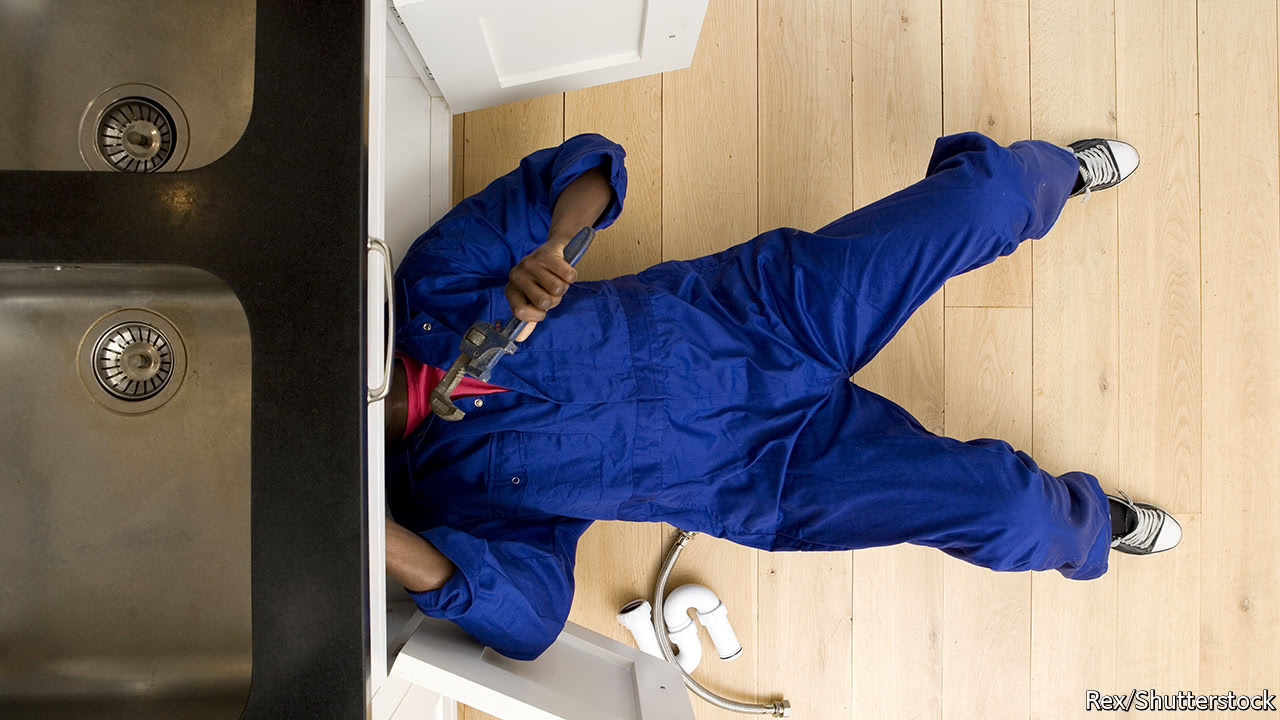 Last Tuesday the gallery of Britain’s Supreme Court was filled with academics, trade unionists and businesspeople who wanted to watch a hearing concerning a dispute between Pimlico Plumbers, a big London company, and one of its former engineers, Gary Smith. The case centres on whether Pimlico correctly classed Mr Smith as self-employed, or whether, as he argues, his relationship with the company more closely approximated one of employment.
Last Tuesday the gallery of Britain’s Supreme Court was filled with academics, trade unionists and businesspeople who wanted to watch a hearing concerning a dispute between Pimlico Plumbers, a big London company, and one of its former engineers, Gary Smith. The case centres on whether Pimlico correctly classed Mr Smith as self-employed, or whether, as he argues, his relationship with the company more closely approximated one of employment.
The case matters because more and more Britons have working lives that resemble Mr Smith’s. Partly fuelled by technology, Britain’s “gig economy” has taken off in recent years. More workers are operating on short-term contracts or going freelance, rather than occupying full-time, permanent positions. Uber, a ride-hailing firm, has roughly 50,000 drivers in Britain and is fighting its own legal case similar to Pimlico’s. Overall, Britain has around 1m gig workers.
The gig economy has upsides for workers. An app can be downloaded in seconds, making it easier than ever to find a job. Britain’s employment rate exceeds 75%, almost reaching its highest ever. Many enjoy the flexibility that such work provides.
Yet problems have emerged. Gig workers miss out on rights that employees have, such as sick pay and protection against unfair dismissal. They are not entitled to the hourly minimum wage of £7.50 ($10.50). Many earn far less.
Broadly speaking, a working Briton can be one of three things: an employee, self-employed, or an intermediate category known as a “worker”, which comes with some rights, including a minimum wage. Gig-economy staff is often considered self-employed. But campaigners, including those backing the plumber in the Pimlico case, argue that firms often exert great control over their staff, forcing them to wear uniforms or controlling their hours. That may imply their staff are really “workers”.
In many instances, people have been misclassified. In 2016 a tribunal ruled that Uber drivers were workers, not self-employed. Last year a cycle courier who worked for CitySprint, a delivery firm, won the right to paid holidays. This month a tribunal ruled that a former BBC newsreader had been wrongly classified as self-employed and was thus liable for a big tax bill.
The Supreme Court’s verdict on the Pimlico case could have a big impact on other businesses if the court rules against the firm and offers an expanded interpretation of worker status.
The British government wants an online tool to allow Britons to check their employment status. It is considering granting a higher minimum wage to workers on insecure contracts. It has promised tougher enforcement of existing laws.
Some of these changes could make the gig economy work better.
